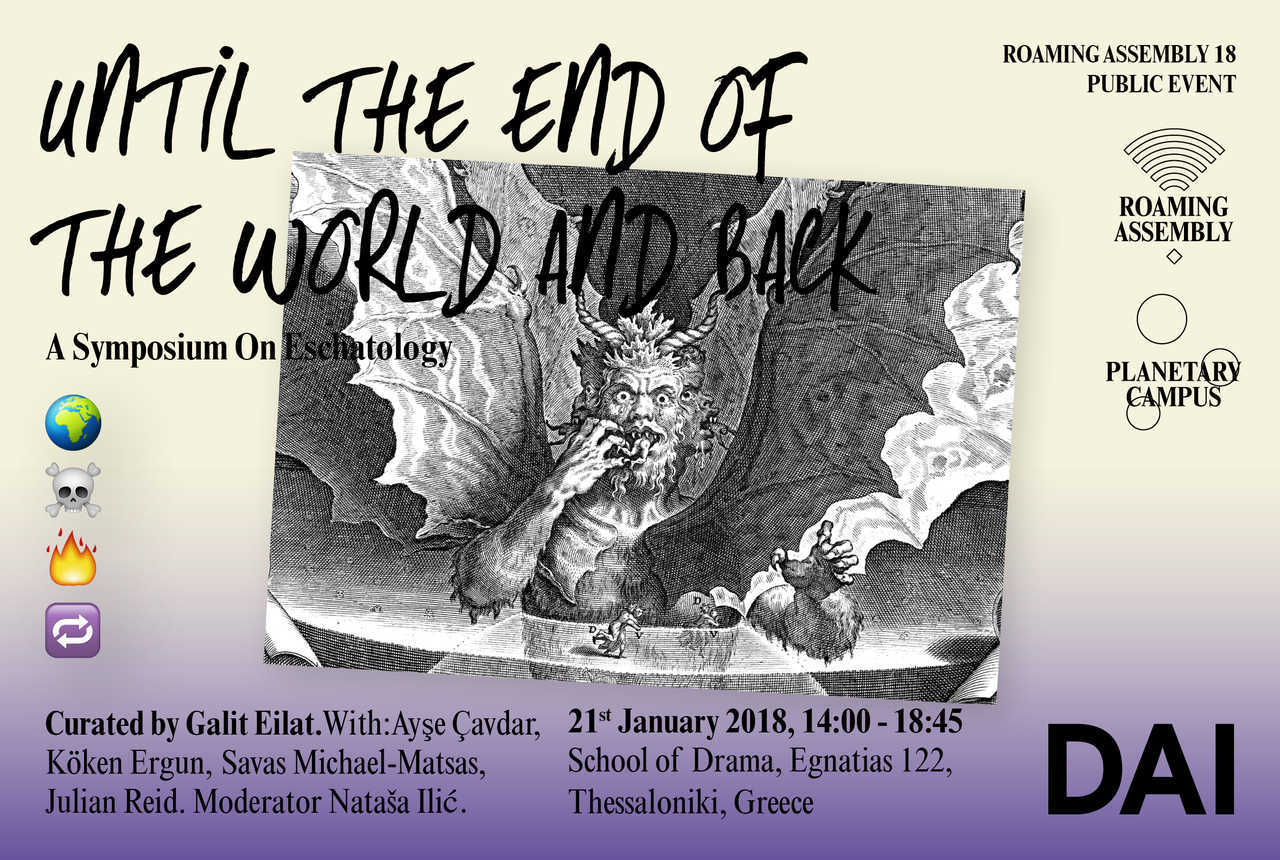2018 ~ Sunday January 21: Roaming Assembly #18 ~ UNTIL THE END OF THE WORLD AND BACK: 'On Eschatology and Syndrome of the Present' ~ Introduction by Galit Eilat
Introduction: On eschatology and Syndrome of the Present
by Galit Eilat
‘‘The concept of progress must be grounded in the idea of catastrophe. That things are “status quo” is the catastrophe …"
Walter Benjamin, ‘Central Park’ (1938)
We live today in a state of crisis. At least, this is what we have been told: environmental, nuclear, and economic catastrophes, the debt crisis, exceptional reforms, preventive actions, socio-economical ‘critical points’, recoveries and survivals are dramatically changing our way of life. The crisis is a fact and catastrophes are real events. Yet, catastrophe has also become a rhetorical tool used to reinforce a general state of anxiety and the sensation of imminent collapse. The rhetoric of crisis suggests a daily apocalyptic scenario in which preventive measures and special interventions are required to ensure the survival of neoliberal forms of governance.
Abrabanel, Hobbes and Schmitt, among other political philosophers, situated the potential catastrophe in the future to make use of it in the present as a tool for consolidating and intensifying collective consciousness, and for defending the political body and the sovereignty of the state. Nowadays, policymakers understand that by means of maintaining and managing the prospect of a potential catastrophe, they can preserve the collective political consciousness of the states they rule, and use fear as the last adhesive that preserves the unity of the national political entity. This only functions to distract one from the fact that the event of catastrophe – and the psychological effects of the crisis – provide for further social and cultural exploitation. The disaster becomes a basis of exploitation, providing for an opportunity for economic and political reforms that will embed the status quo forever. Neoliberalism has thus appropriated elements of classic religious eschatology, without offering us any possibility of redemption.
During the symposium ‘Until the End of the World And Back’, we will trace the elements of various forms of eschatology from theology to our contemporary reality. We will learn to recognize, understand, and if necessary transform the narratives and imaginaries of eschatology, and move from utopia to dystopia and back.
ROAMING ASSEMBLY#18 ~ UNTIL THE END OF THE WORLD AND BACK

